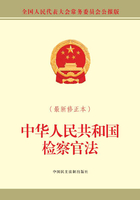CHOICE AMONG EVILS.
A few days afterward--it was a Wednesday--Pauline came up to town early in the afternoon, as she had an appointment with the dressmaker and was going to the opera in the evening.At the dressmaker's, while she waited for a fitter to return from the workroom, she glanced at a newspaper spread upon the table so that its entire front page was in view.It was filled with an account of how the Woolens Monopoly had, in that bitter winter, advanced prices twenty to thirty-five per cent.all along the line.From the center of the page stared a picture of John Dumont--its expression peculiarly arrogant and sinister.
She read the head-lines only, then turned from the table.But on the drive up-town she stopped the carriage at the Savoy and sent the footman to the news-stand to get the paper.She read the article through--parts of it several times.
She had Langdon and Honoria Longview at dinner that night; by indirect questioning she drew him on to confirm the article, to describe how the Woolens Monopoly was "giving the country an old-fashioned winter." On the way to the opera she was ashamed of her ermine wrap enfolding her from the slightest sense of the icy air.She did not hear the singers, was hardly conscious of her surroundings.As they left the Metropolitan she threw back her wrap and sat with her neck bared to the intense cold.
"I say, don't do that!" protested Langdon.
She reluctantly drew the fur about her.But when she had dropped him and then Honoria and was driving on up the avenue alone, she bared her shoulders and arms again--"like a silly child," she said.But it gave her a certain satisfaction, for she felt like one who has a secret store of food in time of famine and feasts upon it.And she sat unprotected.
"Is Mr.Dumont in?" she asked the butler as he closed the door of their palace behind her.
"I think he is, ma'am."
"Please tell him I'd like to see him--in the library."She had to wait only three or four minutes before he came--in smoking jacket and slippers.It was long since she had looked at him so carefully as she did then; and she noted how much grosser he was, the puffs under his eyes, the lines of cruelty that were coming out strongly with autocratic power and the custom of receiving meek obedience.And her heart sank."Useless," she said to herself."Utterly useless!" And the incident of the necklace and its reminders of all she had suffered from him and through him came trooping into her mind; and it seemed to her that she could not speak, could not even remain in the room with him.
He dropped into a chair before the open fire."Horribly cold, isn't it?"She moved uneasily.He slowly lighted a cigar and began to smoke it, his attitude one of waiting.
"I've been thinking," she began at last--she was looking reflectively into the fire--"about your great talent for business and finance.You formed your big combination, and because you understand everything about wool you employ more men, you pay higher wages, and you make the goods better than ever, and at less cost.""Between a third and a half cheaper," he said."We employ thirty thousand more men, and since we settled the last strike"--a grim smile that would have meant a great deal to her had she known the history of that strike and how hard he had fought before he gave in--"we've paid thirty per cent.higher wages.Yet the profits are--well, you can imagine.""And you've made millions for yourself and for those in with you.""I haven't developed my ideas for nothing."She paused again.It was several minutes before she went on:
"When a doctor or a man of science or a philosopher makes a discovery that'll be a benefit to the world"--she looked at him suddenly, earnest, appealing--"he gives it freely.And he gets honor and fame.Why shouldn't you do that, John?" She had forgotten herself in her subject.
He smiled into the fire--hardly a day passed that he did not have presented to him some scheme for relieving him of the burden of his riches; here was another, and from such an unexpected quarter!
"You could be rich, too.We spend twenty, fifty times as much as we can possibly enjoy; and you have more than we could possibly spend.Why shouldn't a man with financial genius be like men with other kinds of genius? Why should he be the only one to stay down on the level with dull, money-grubbing, sordid kinds of people? Why shouldn't he have ideals?"He made no reply.Indeed, so earnest was she that she did not give him time, but immediately went on:
"Just think, John! Instead of giving out in these charities and philanthropies--I never did believe in them--they're bound to be more or less degrading to the people that take, and when it's so hard to help a friend with money without harming him, how much harder it must be to help strangers.Instead of those things, why not be really great? Just think, John, how the world would honor you and how you would feel, if you used your genius to make the necessaries cheap for all these fellow-beings of ours who have such a hard time getting on.That would be real superiority--and our life now is so vain, so empty.It's brutal, John.""What do you propose?" he asked, curious as always when a new idea was presented to him.And this was certainly new--apparently, philanthropy without expense.
"You are master.You can do as you please.Why not put your great combine on such a basis that it would bring an honest, just return to you and the others, and would pay the highest possible wages, and would give the people the benefit of what your genius for manufacturing and for finance has made possible? I think we who are so comfortable and never have to think of the necessaries of life forget how much a few cents here and there mean to most people.And the things you control mean all the difference between warmth and cold, between life and death, John!"As she talked he settled back into his chair, and his face hardened into its unyielding expression.A preposterous project!















